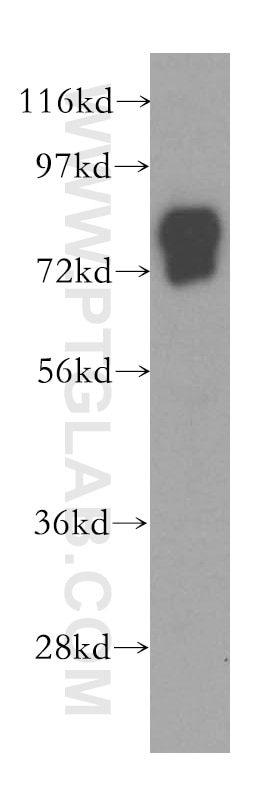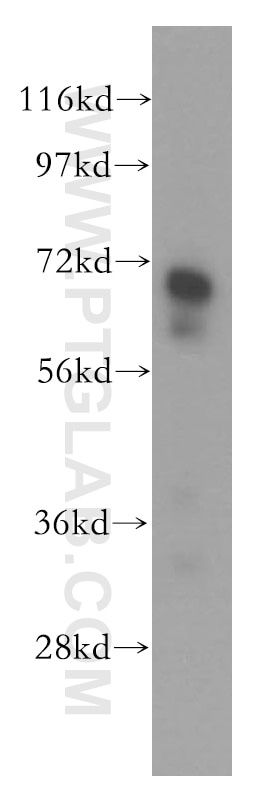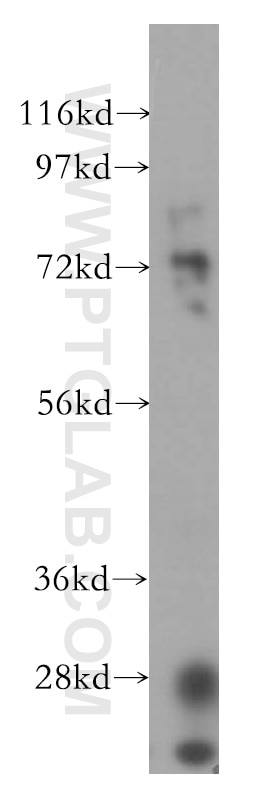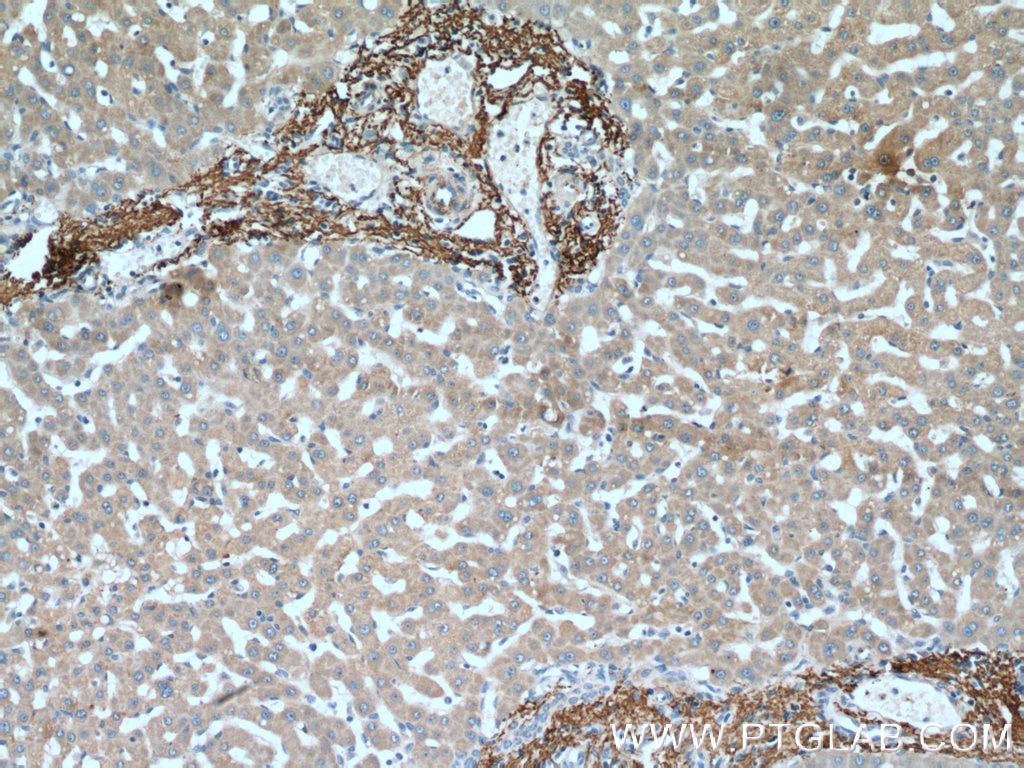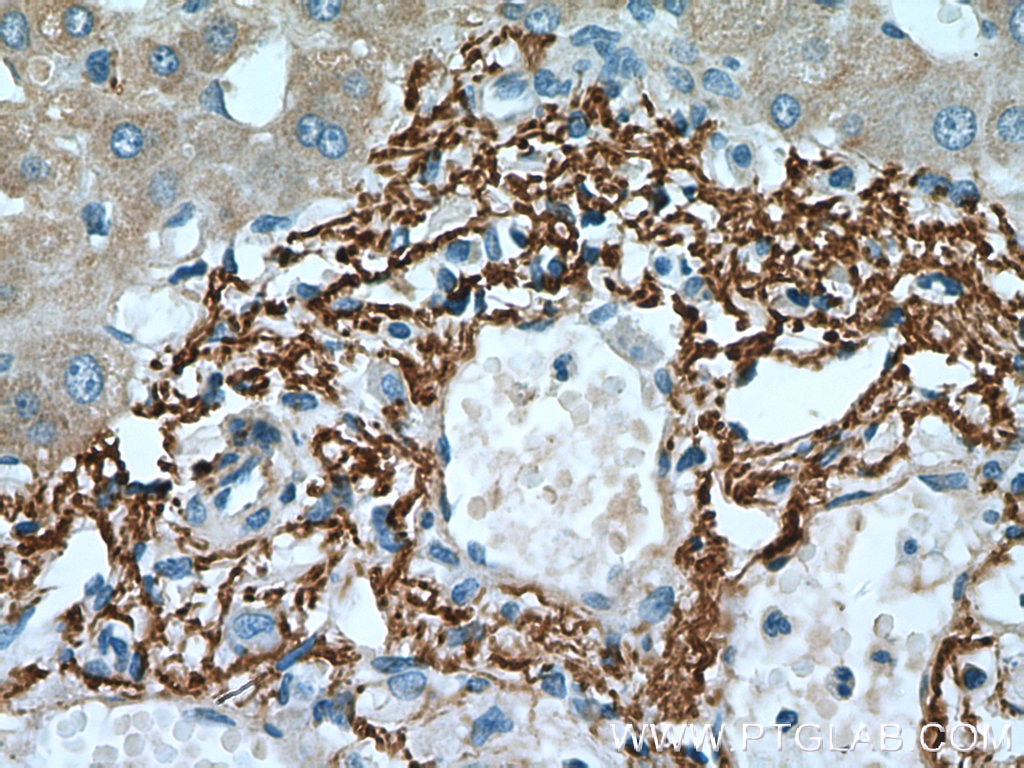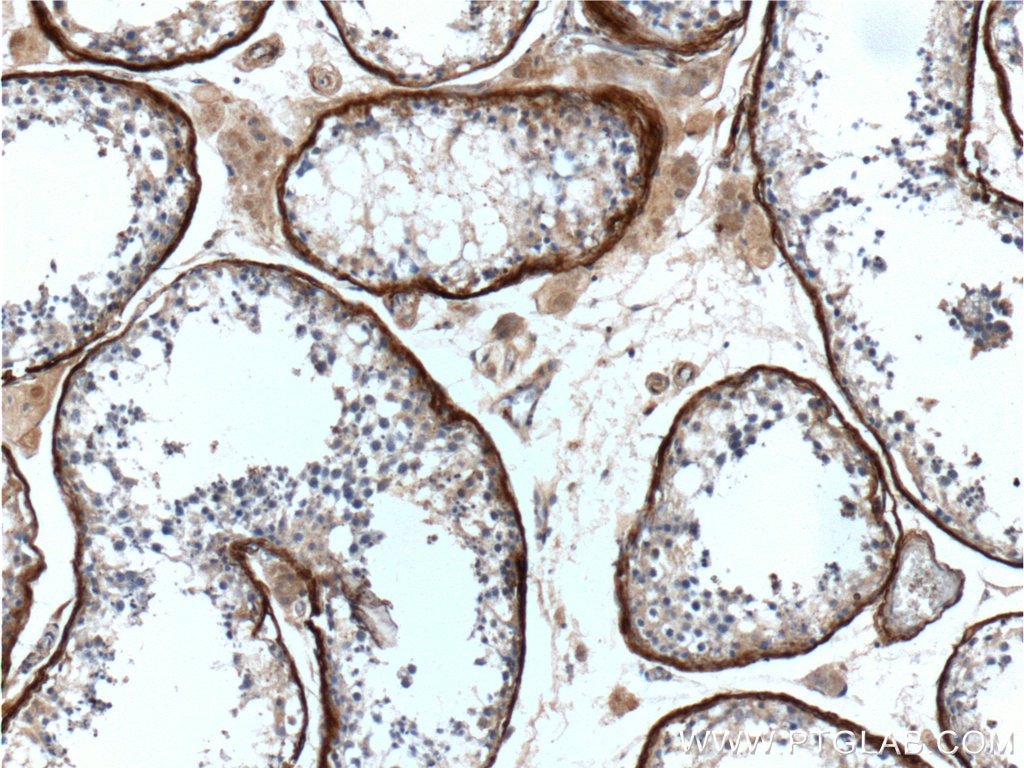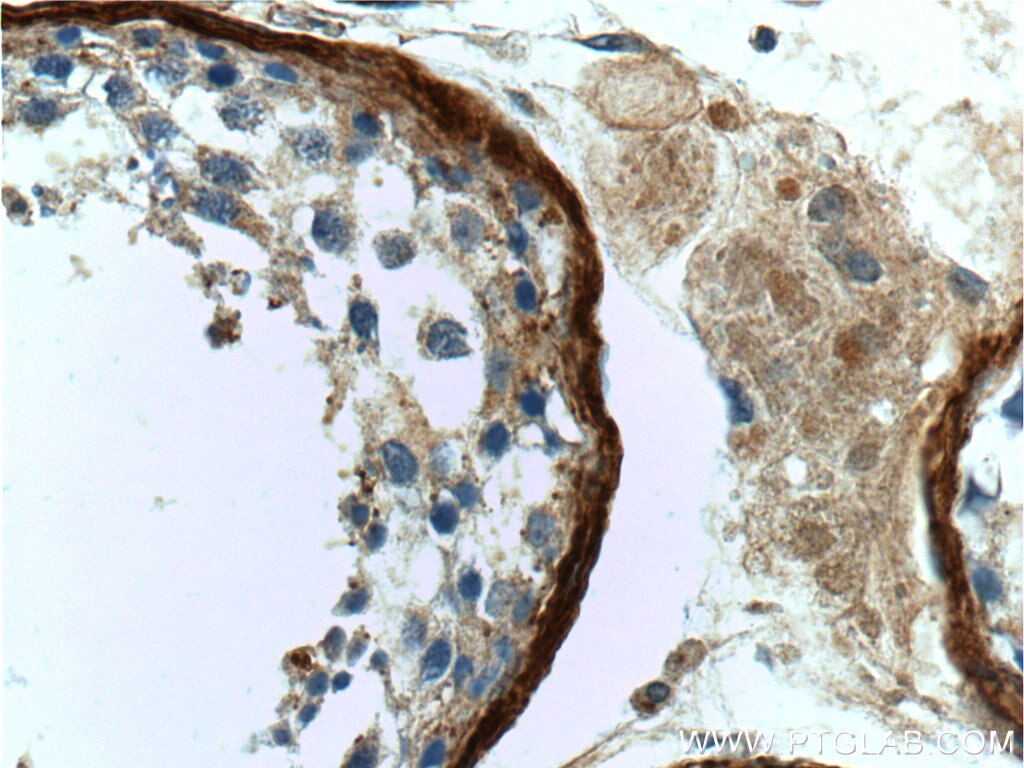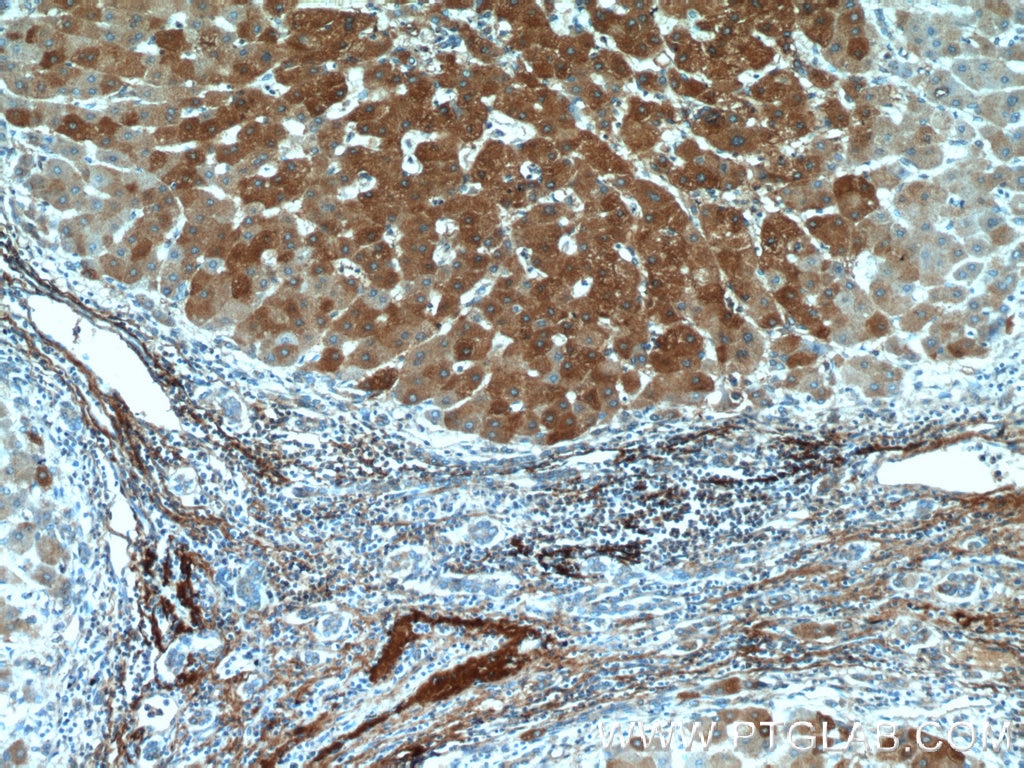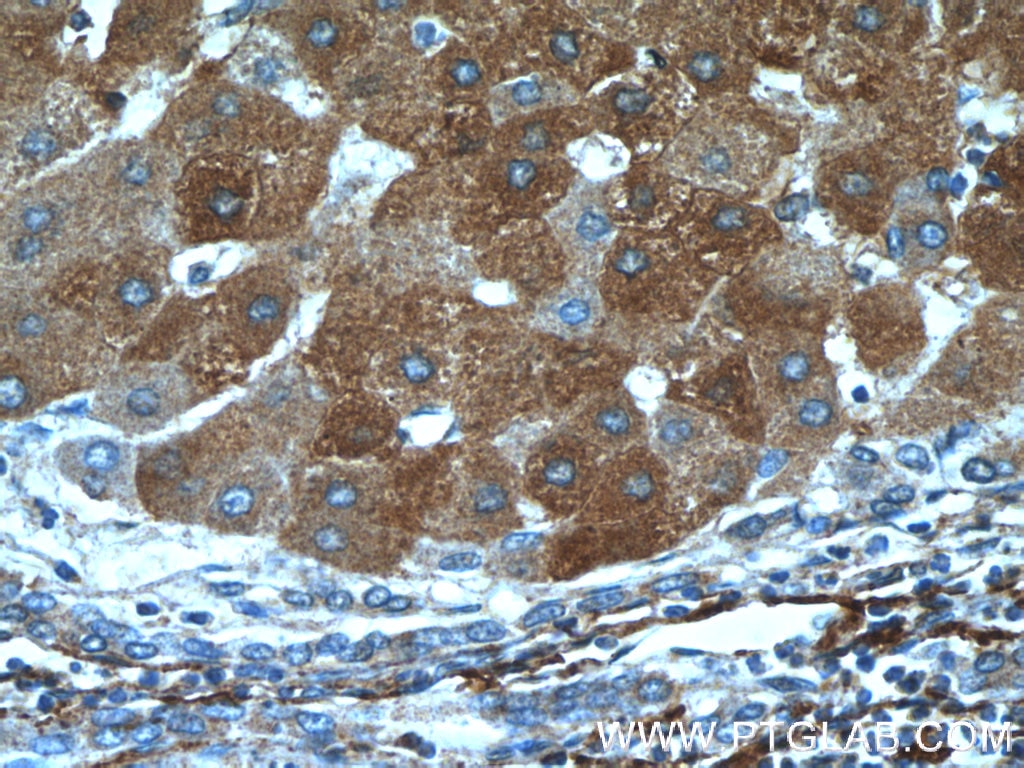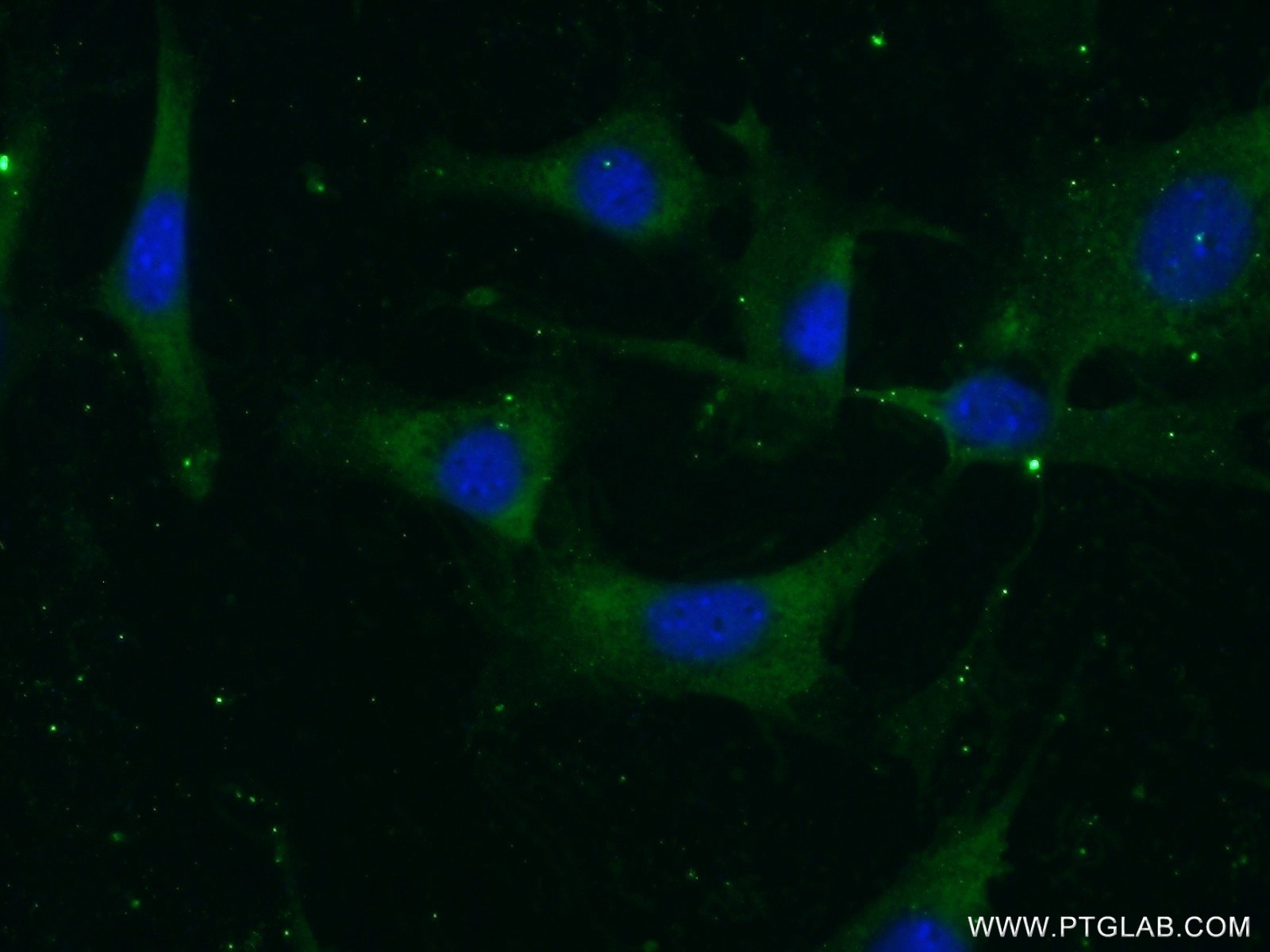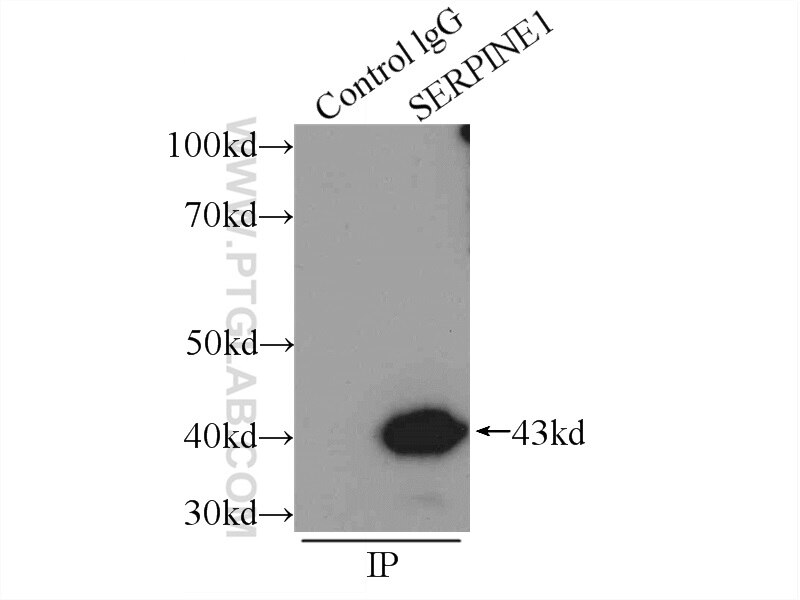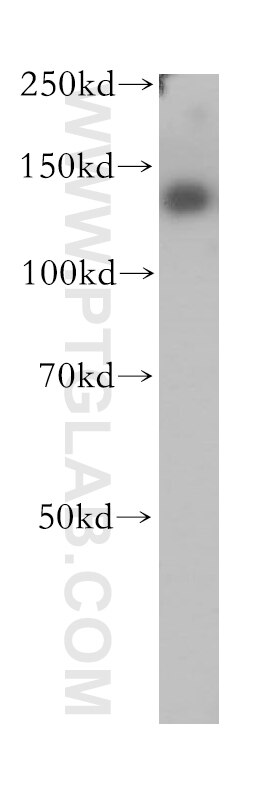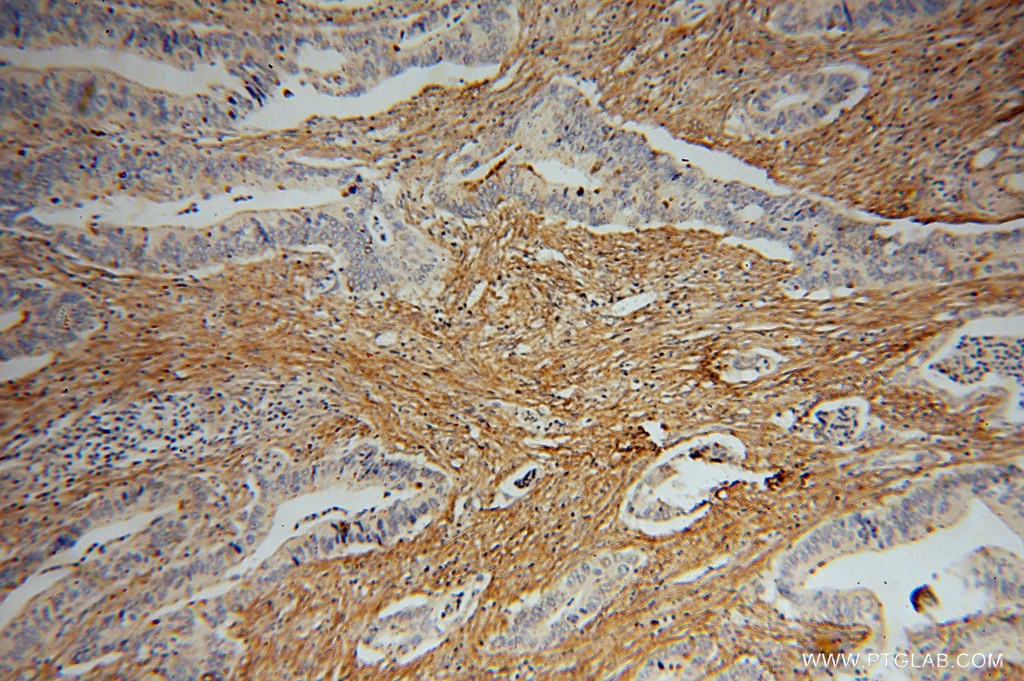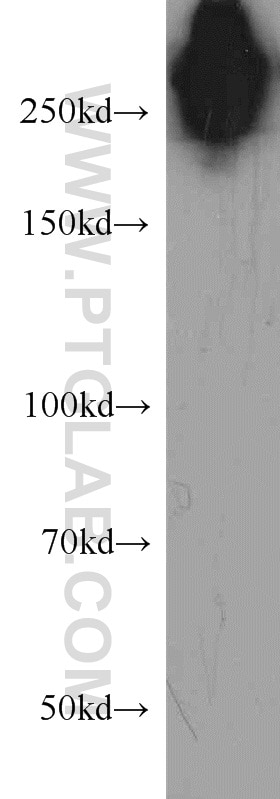Vitronectin Polyklonaler Antikörper
Vitronectin Polyklonal Antikörper für IF, IHC, WB, ELISA
Wirt / Isotyp
Kaninchen / IgG
Getestete Reaktivität
human, Maus, Ratte und mehr (2)
Anwendung
WB, IHC, IF, ELISA
Konjugation
Unkonjugiert
Kat-Nr. : 15833-1-AP
Synonyme
Galerie der Validierungsdaten
Geprüfte Anwendungen
| Erfolgreiche Detektion in WB | rat plasma, humanes Hodengewebe, NIH/3T3-Zellen |
| Erfolgreiche Detektion in IHC | humanes Lebergewebe, humanes Hodengewebe, humanes Leberzirrhosegewebe Hinweis: Antigendemaskierung mit TE-Puffer pH 9,0 empfohlen. (*) Wahlweise kann die Antigendemaskierung auch mit Citratpuffer pH 6,0 erfolgen. |
| Erfolgreiche Detektion in IF | NIH/3T3-Zellen |
Empfohlene Verdünnung
| Anwendung | Verdünnung |
|---|---|
| Western Blot (WB) | WB : 1:5000-1:50000 |
| Immunhistochemie (IHC) | IHC : 1:50-1:500 |
| Immunfluoreszenz (IF) | IF : 1:50-1:500 |
| It is recommended that this reagent should be titrated in each testing system to obtain optimal results. | |
| Sample-dependent, check data in validation data gallery | |
Veröffentlichte Anwendungen
| WB | See 11 publications below |
| IHC | See 2 publications below |
| IF | See 5 publications below |
Produktinformation
15833-1-AP bindet in WB, IHC, IF, ELISA Vitronectin und zeigt Reaktivität mit human, Maus, Ratten
| Getestete Reaktivität | human, Maus, Ratte |
| In Publikationen genannte Reaktivität | human, Hausschwein, Ratte, Plasmodium falciparum |
| Wirt / Isotyp | Kaninchen / IgG |
| Klonalität | Polyklonal |
| Typ | Antikörper |
| Immunogen | Vitronectin fusion protein Ag8443 |
| Vollständiger Name | vitronectin |
| Berechnetes Molekulargewicht | 478 aa, 54 kDa |
| Beobachtetes Molekulargewicht | 75 kDa |
| GenBank-Zugangsnummer | BC005046 |
| Gene symbol | VTN |
| Gene ID (NCBI) | 7448 |
| Konjugation | Unkonjugiert |
| Form | Liquid |
| Reinigungsmethode | Antigen-Affinitätsreinigung |
| Lagerungspuffer | PBS mit 0.02% Natriumazid und 50% Glycerin pH 7.3. |
| Lagerungsbedingungen | Bei -20°C lagern. Nach dem Versand ein Jahr lang stabil Aliquotieren ist bei -20oC Lagerung nicht notwendig. 20ul Größen enthalten 0,1% BSA. |
Hintergrundinformationen
Vitronectin is a 75-kDa glycoprotein present in blood and in the extracellular matrix (PMID: 10399314). Vitronectin is a multifunctional glycoprotein that mediates cell-to-substrate adhesion, inhibits the cytolytic action of the terminal complement cascade in vitro and binds to several serine protease inhibitors of the serpin family (PMID: 1372588).
Protokolle
| Produktspezifische Protokolle | |
|---|---|
| WB protocol for Vitronectin antibody 15833-1-AP | Protokoll herunterladen |
| IHC protocol for Vitronectin antibody 15833-1-AP | Protokoll herunterladen |
| IF protocol for Vitronectin antibody 15833-1-AP | Protokoll herunterladen |
| Standard-Protokolle | |
|---|---|
| Klicken Sie hier, um unsere Standardprotokolle anzuzeigen |
Publikationen
| Species | Application | Title |
|---|---|---|
Brain Pathol Reconstituting neurovascular unit with primary neural stem cells and brain microvascular endothelial cells in three-dimensional matrix. | ||
Sci Rep Molecular Camouflage of Plasmodium falciparum Merozoites by Binding of Host Vitronectin to P47 Fragment of SERA5. | ||
J Cell Mol Med Induction of migration of periodontal ligament cells by selective regulation of integrin subunits. | ||
Langmuir Characterization of Initial Cell Adhesion on Charged Polymer Substrates in Serum-Containing and Serum-Free Media. | ||
Proteomics SILAC-based Quantitative Proteomic Analysis of Secretome between Activated and Reverted Hepatic Stellate Cells. | ||
BMC Genomics The fiber diameter traits of Tibetan cashmere goats are governed by the inherent differences in stress, hypoxic, and metabolic adaptations: an integrative study of proteome and transcriptome. |
Rezensionen
The reviews below have been submitted by verified Proteintech customers who received an incentive forproviding their feedback.
FH Jingwen (Verified Customer) (01-28-2020) | It worked well when I performed the western blot in cancer samples.
|
